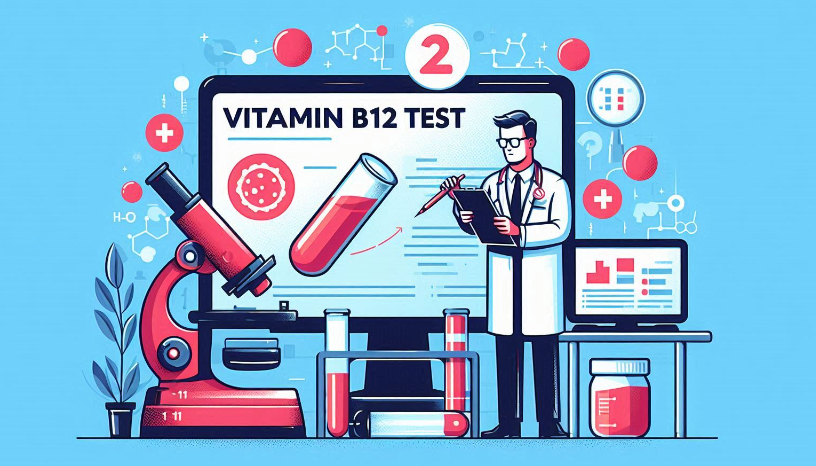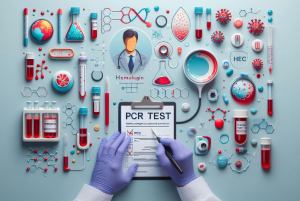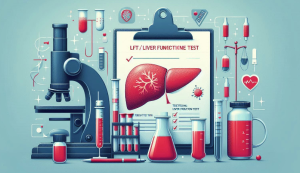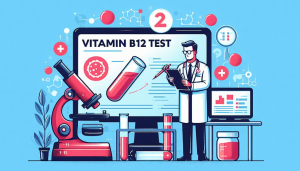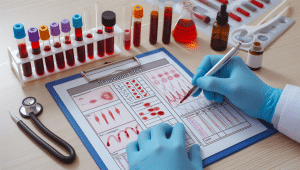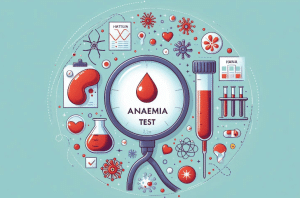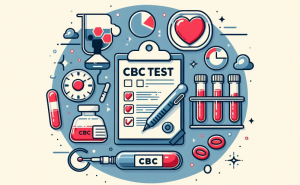What is a Vitamin B12 Test?
A Vitamin B12 Test measures the level of vitamin B12 in your blood. Vitamin B12, also known as cobalamin, is a crucial water-soluble vitamin that plays a vital role in several bodily functions, including red blood cell formation, DNA synthesis, and nerve function.
Why Do You Need a Vitamin B12 Test?
A healthcare provider might recommend this test if they suspect:
- Vitamin B12 deficiency: Symptoms like fatigue, weakness, pale skin, shortness of breath, numbness or tingling in the hands and feet, memory problems, or depression could indicate a deficiency.
- Megaloblastic anemia: A type of anemia characterized by large, immature red blood cells, often associated with B12 deficiency.
- Monitoring vitamin B12 supplementation: People taking vitamin B12 supplements, especially those with absorption issues, might need regular monitoring.
- Assessing certain medical conditions: Conditions such as pernicious anemia (an autoimmune disease), Crohn’s disease, celiac disease, or surgeries affecting the stomach or intestines can impact vitamin B12 absorption.
What Does a Vitamin B12 Test Measure?
The test primarily measures the concentration of vitamin B12 in your blood serum. It can indirectly reveal:
- Vitamin B12 status: Whether you have sufficient, deficient, or excessive levels of vitamin B12.
- Potential health risks: Vitamin B12 deficiency can lead to anemia, nerve damage, and other complications.
- Underlying conditions: Abnormal levels might signal issues with nutrient absorption or other medical conditions.
Preparing for the Test
Generally, no special preparation is required for a Vitamin B12 test. However:
- Fasting: Some labs might recommend fasting for a few hours before the blood test. Check with your healthcare provider.
- Medications: Inform your doctor about any medications or supplements you are taking, as some can interfere with the results.
Understanding the Results
Normal vitamin B12 levels typically fall between 200-900 pg/mL. The interpretation can vary depending on the lab and other factors.
- Low levels (deficiency): This might lead to anemia, nerve problems, and other health complications.
- High levels: While rare, elevated levels might suggest liver disease, certain blood cancers, or kidney problems.
- Normal levels: Indicate adequate vitamin B12 status.
Risk Factors and Prevention
Factors that increase the risk of vitamin B12 deficiency include:
- Vegetarian or vegan diet: Plant-based diets might lack adequate vitamin B12, as it is primarily found in animal products.
- Older age: The ability to absorb vitamin B12 can decrease with age.
- Conditions affecting absorption: Pernicious anemia, Crohn’s disease, celiac disease, or surgeries affecting the stomach or intestines can hinder vitamin B12 absorption.
- Certain medications: Some drugs can interfere with vitamin B12 absorption.
Prevention and management involve:
- Dietary intake: Include vitamin B12-rich foods like meat, fish, poultry, eggs, and dairy in your diet. Consider fortified foods or supplements if you follow a vegetarian or vegan diet.
- Supplementation: Your doctor might recommend vitamin B12 supplements, especially if you have absorption issues or follow a restrictive diet.
- Addressing underlying conditions: Treating any conditions that affect vitamin B12 absorption is crucial.
Remember, maintaining adequate vitamin B12 levels is important for your overall health. Consult with your healthcare provider if you have any concerns or are at risk of deficiency.

 7351982473
7351982473